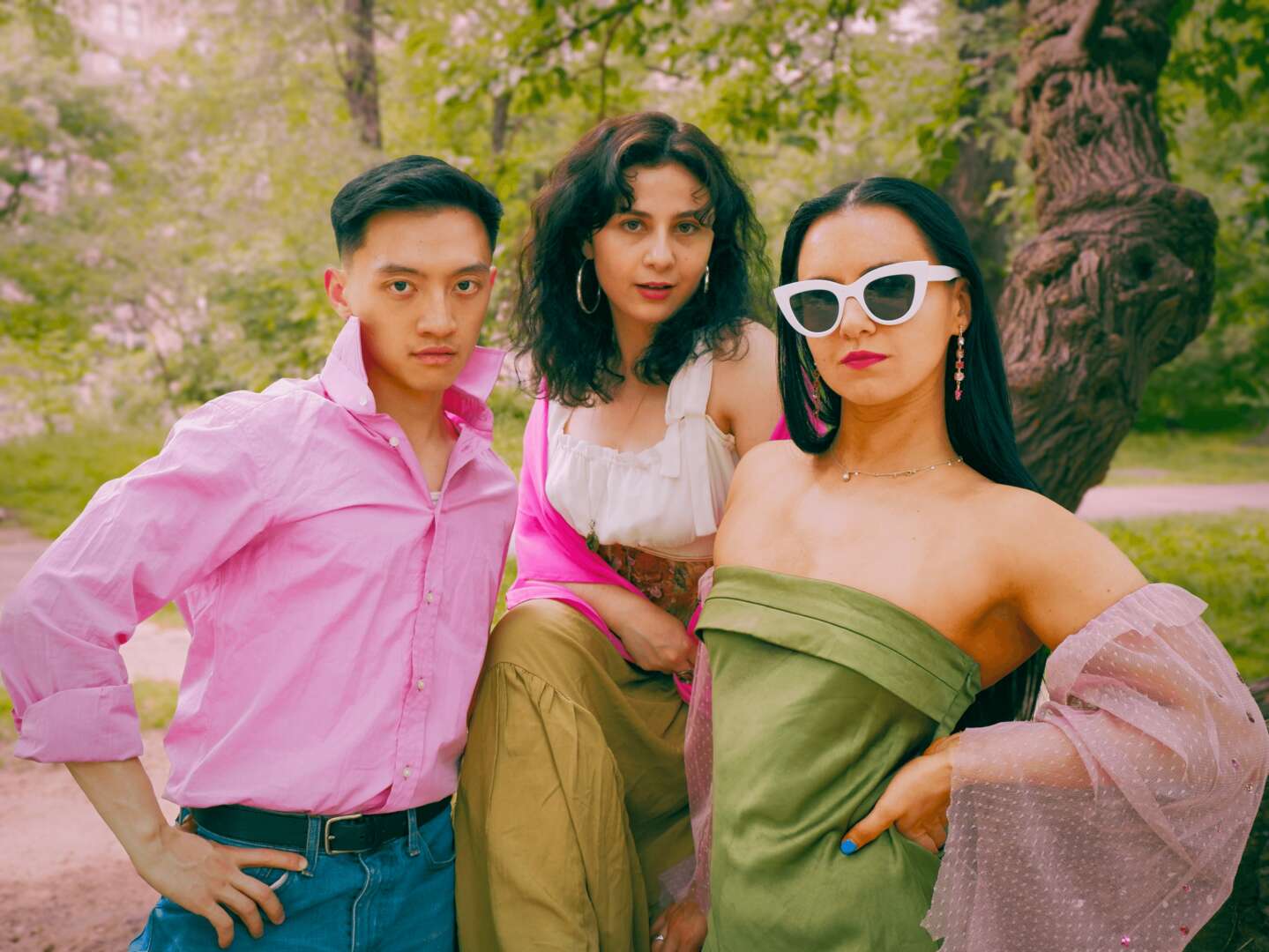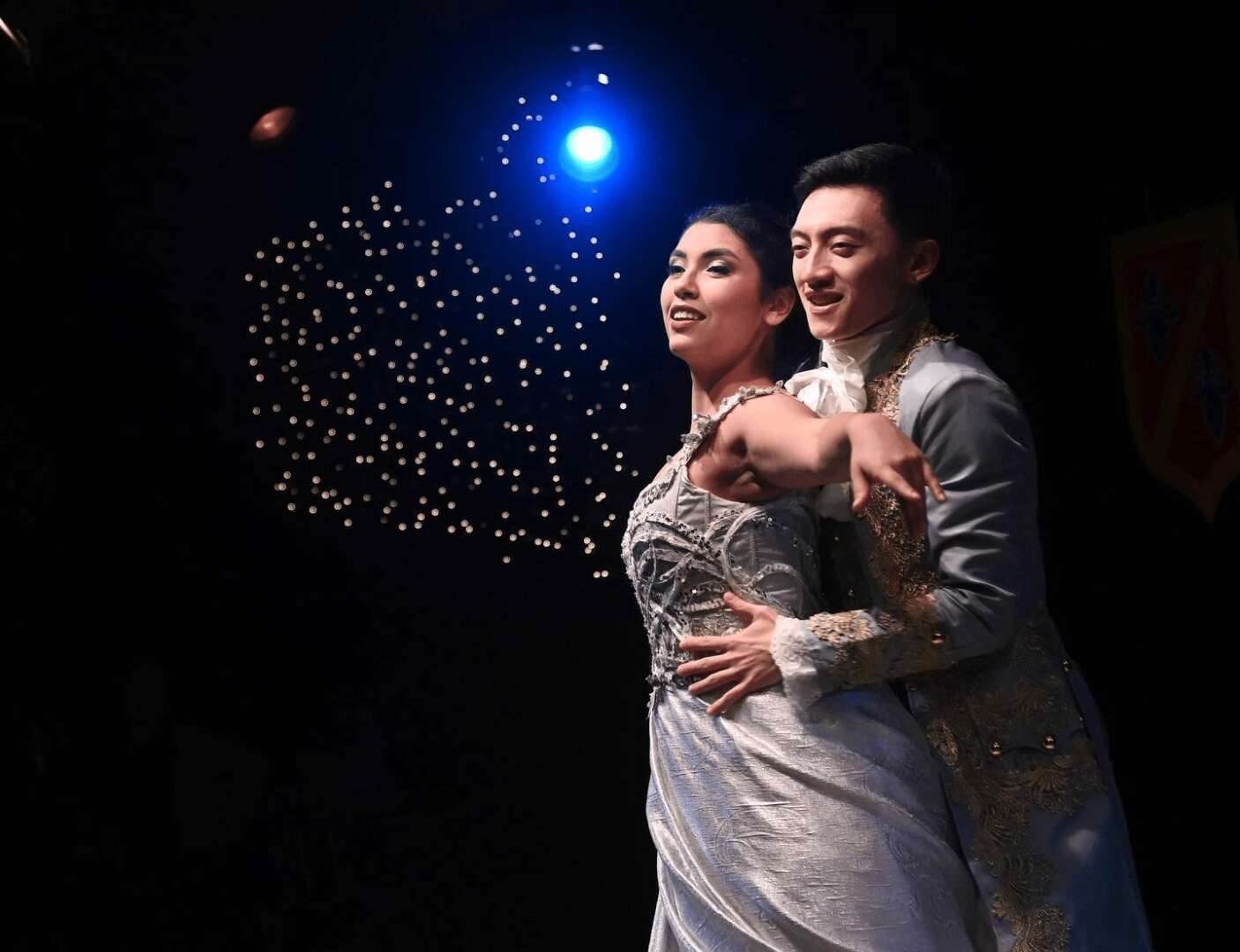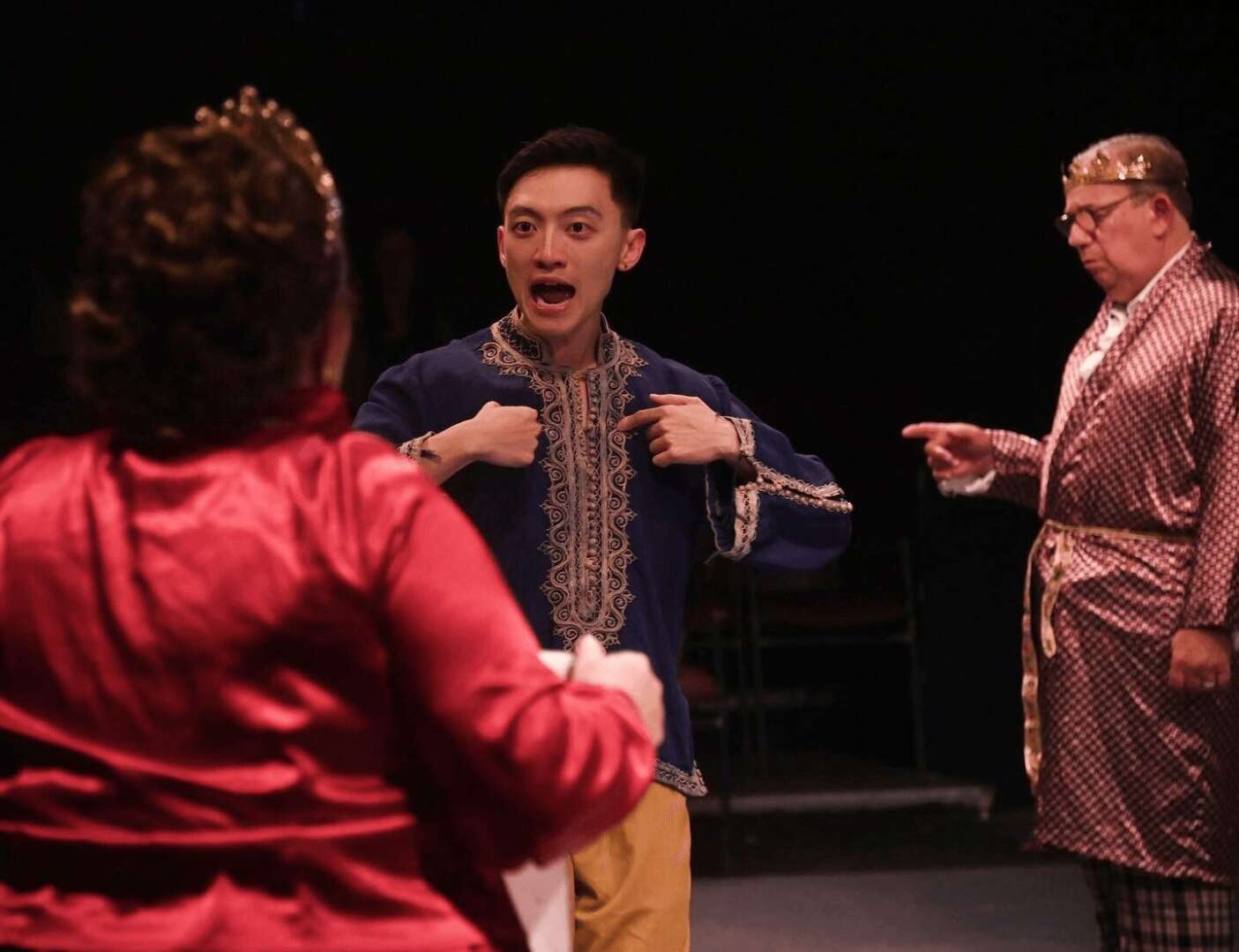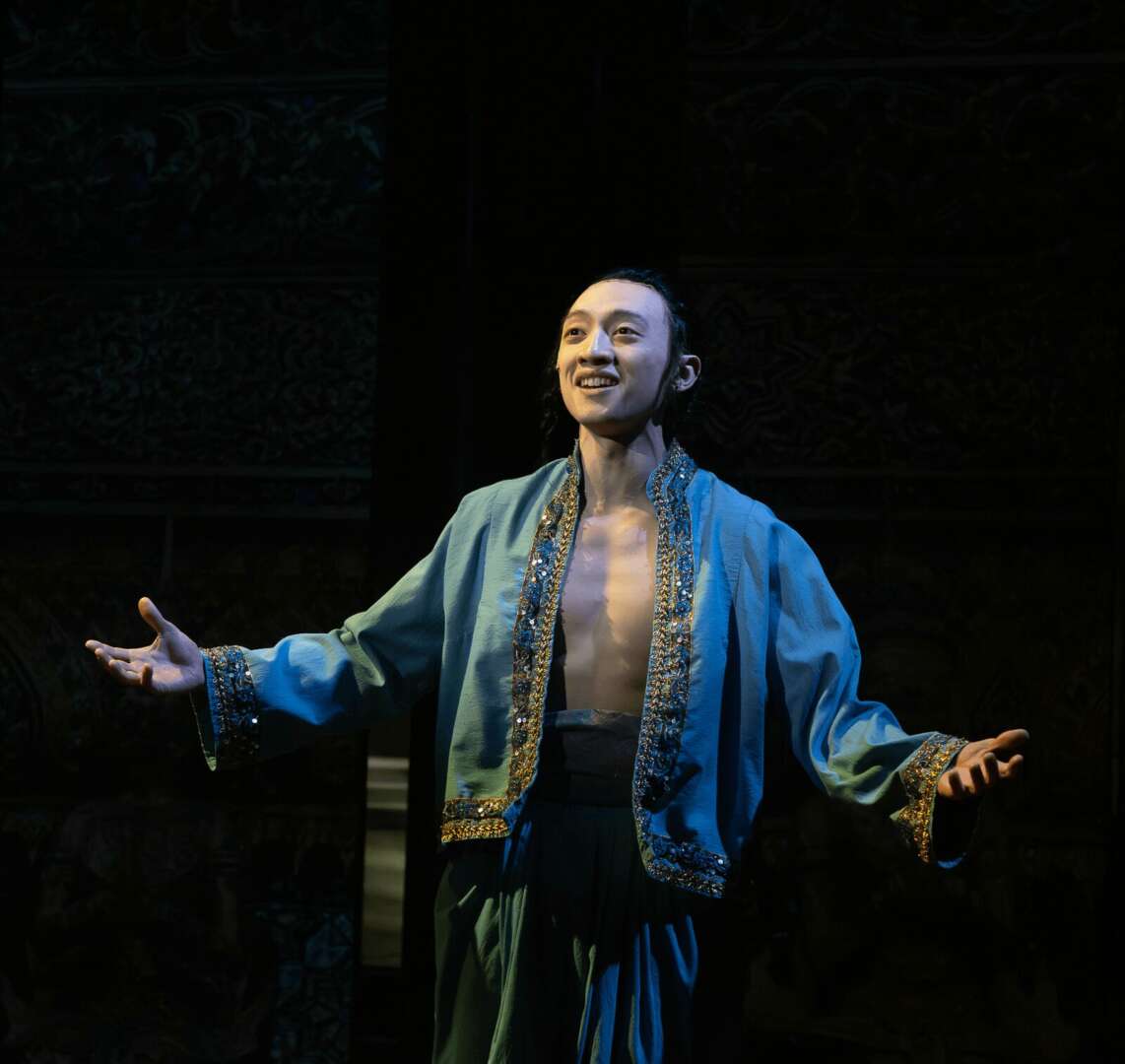We recently connected with Yu Hin Bryan Chan and have shared our conversation below.
Yu Hin Bryan, appreciate you joining us today. It’s always helpful to hear about times when someone’s had to take a risk – how did they think through the decision, why did they take the risk, and what ended up happening. We’d love to hear about a risk you’ve taken.
I fell in love with Musical Theatre when I was an undergraduate at the University of Michigan, but that came with a twist.
I’ve always despised the hugely extroverted style of Musical Theatre. All throughout high school, friends would perfectly recite the lyrics to “Hamilton” or “Les Miserable” and I would cringe at my core and tell them to stop. Hence, even after I switched my majors from Electrical Engineering to Voice Performance, I never dabbled in anything but classical and operatic singing.
My girlfriend at the time, was the complete opposite. She was a musical theatre fanatic, and couldn’t wait to audition for the Theatre School’s production of In The Heights. As a proud member of the Latiné community, she made it her mission to perform the role of Nina one day, and she wanted me to audition with her for this production.
Initially, I refused profusely. I have never heard of In The Heights, I despised Musical Theatre, I didn’t even know what song I would sing as an audition piece. However, she convinced me to audition for the role of Benny since he and Nina had smoochy scenes. I reluctantly obliged. I step into the audition room knowing close to nothing about the show, or musical theatre really.
After a long audition and callback process, by the miracle of the gods they cast me as Benny. My stage intimacy hopes with my girlfriend, however, were dashed when she instead got the role of Vanessa who has zero interaction with Benny.
What I didn’t expect from this tiny risk I have taken with Musical Theatre completely altered my life trajectory. In the span of 2 years after the show, I did 8 musical theatre and theatre productions all throughout the university, I worked an entire summer with a professional theatre company performing and understudying ensemble and lead characters, and I decided to pivot from classical singing to musical theatre completely, later on pursuing a MFA in Musical Theatre Vocal Pedagogy.
The lesson to be learned by me over and over throughout my career is that open-mindedness is the catalyst of opportunity. If you are open-minded enough to challenge your own assumptions, you just might find something valuable for you to pursue.


As always, we appreciate you sharing your insights and we’ve got a few more questions for you, but before we get to all of that can you take a minute to introduce yourself and give our readers some of your back background and context?
I’m Yu Hin Bryan Chan, but you can call me Bryan. I’m a cross-genre singer, actor, voice teacher, and producer based in New York City. My journey in the performing arts started back in Hong Kong, where I grew up. I got my first taste of music through competitive choir singing at Diocesan Boys’ School, which taught me a lot about teamwork, dedication, and musicianship
I fell in love with theater during my sophomore year of college in the U.S. when I played Benny in “In The Heights” at the University of Michigan. Since then, I’ve performed in NYC and regional theatres, playing Lun Tha in “The King And I” and receiving rave reviews from BroadwayWorld and many other reviewers. I also starred in Prince Christopher in “Cinderella” (Off-off-broadway) and Conrade/Balthasar in “Much Ado About Nothing” (Off-off-broadway). Each role has allowed me to explore different characters and connect with audiences in meaningful ways.
Besides performing, I teach voice at New York Vocal Coaching, helping students discover their vocal potential and achieve their artistic dreams. My approach to teaching is holistic—I believe technique and emotional expression are equally important. With an M.F.A. in Musical Theatre Vocal Pedagogy from the Boston Conservatory at Berklee, I offer comprehensive coaching tailored to each student’s needs.
I also produce projects, like “Late Night Vibing: Asian R&B” at The Green Room 42, showcasing the diversity of Asian R&B music. I’m passionate about creating spaces where everyone can shine.
What sets me apart? I’m always trying new things and finding new connections between my past experiences and current projects. Since graduating from my master’s program, I have performed in 4 theatre shows, 3 cabarets, 2 table readings, and 1 film in the span of a year. My ability to be courageous in unfamiliar, uncomfortable settings has won me many opportunities I wouldn’t have gotten otherwise. I never settle for doing things the same way twice, which helps me bring a unique perspective to everything I do.
I’m most proud of my work’s positive impact on audiences and students. Whether it’s a memorable performance on stage or on film or a breakthrough in my voice student’s journey, those experiences mean the world to me. On top of that, I am so proud of the network of creatives I have built for myself in NYC.
To anyone following my journey, my work is driven by a deep love for storytelling and a commitment to excellence. I aim to inspire and uplift through my performances, teaching, and productions. With hard work and creativity, I believe anything is possible.


Is there something you think non-creatives will struggle to understand about your journey as a creative? Maybe you can provide some insight – you never know who might benefit from the enlightenment.
One thing non-creatives might struggle to understand about the journey of a creative is the constant need for resilience and adaptability. As an artist, you’re frequently faced with rejection, uncertainty, and the pressure to continuously innovate. It’s not just about talent or passion; it’s about persevering through countless auditions, rejections, and setbacks. There’s a misconception that creativity flows effortlessly, but in reality, it involves a lot of hard work, discipline, and sometimes even failure.
Additionally, the emotional investment in our work is immense. Every performance or piece of art is a part of us, and sharing it with the world makes us vulnerable. This vulnerability is both a strength and a challenge because it requires us to be open to critique while staying true to our vision.
What I’d like non-creatives to understand is that this journey, while challenging, is incredibly rewarding. The moments of connection, the breakthroughs, and the ability to move and inspire others make all the struggles worth it. By understanding and appreciating the dedication behind our craft, they can better support, respect, and celebrate the arts, fostering a richer, more empathetic community for everyone.


We often hear about learning lessons – but just as important is unlearning lessons. Have you ever had to unlearn a lesson?
Being a perfectionist, at least in the way I was, is the worst thing you can do as a creative and as an artist.
I remember the first time I was called out for being a perfectionist. During a documentary a local news outlet in Hong Kong made about my high school’s choir, the interviewer asked my choir director what he thought of me as the choir chairman. My director said, “He’s very musical, and he’s quite the perfectionist.” I remember being super proud of myself when I saw that on live TV, and I wore it almost as a badge of honor for many years. To me, being a perfectionist meant putting yourself at the highest standard possible, and never settling for less.
Fast forward to my graduate school days. I was singing the best I’ve ever sung in my life and getting the education I’ve always wanted in musical theatre, yet my confidence and self-esteem were at an all-time low. Because I forced myself to never be satisfied, I always found reasons and ways to criticize my abilities. Moreover, my expectations for what “perfection” looked like were solely based on how other people viewed my art, not necessarily what I organically felt about my art. These two factors, combined with a couple of subpar live performances on stage, culminated in me breaking down in front of my classmates one day. I realized that the cruel, calculating “perfectionist” inner dialogue is eating away my love for performing and the courage to create. In the pursuit of appearing “perfect” with my art, I have removed my ability to listen to my heart, appreciate what I have, and create anything new.
It was a long process of unlearning this habitual thought pattern. I still sometimes fall back on my “perfectionist” tendencies. The valuable lesson I’ve learned, however, is that great art is created by one’s ability to accept imperfections as part of who they are.
Contact Info:
- Website: https://www.chanyuhinbryan.com
- Instagram: bryanchanuwu
- Youtube: https://www.youtube.com/channel/UC80ZaddwUOPl2Put3JlmnuA


Image Credits
Yan Yu
Sy Chounchaisit
Indy Ghostlight
Sarah Jack


